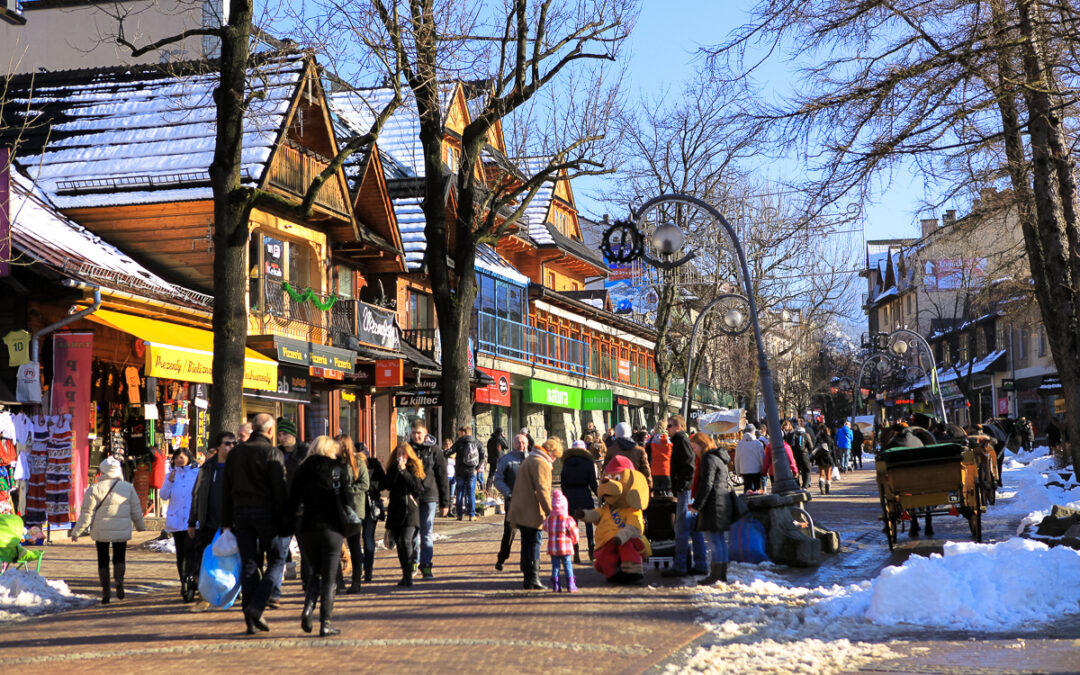Keep our news free from ads and paywalls by making a donation to support our work!

Notes from Poland is run by a small editorial team and is published by an independent, non-profit foundation that is funded through donations from our readers. We cannot do what we do without your support.
Poland’s Supreme Administrative Court (NSA) has issued a ruling confirming that Zakopane, a popular mountain resort town, is unjustified in charging tourists a “climate fee” given how bad the air quality is in the area.
The decision opens the way for those who paid the charge to claim back their money. However, Zakopane says that it disagrees with the ruling and plans to change its local laws so that it can continue charging the fee, which brings in around 5 million zloty (€1.2 million) a year.
Wyrok Naczelnego Sądu Administracyjnego ostatecznie potwierdza, że Zakopane nie ma podstaw prawnych, do tego, by pobierać opłatę klimatyczną. Powód? Zła jakość powietrza.https://t.co/kWxSPTree6
— Michał Wojtczuk (@MichaWojtcz) April 1, 2025
The decision by the NSA marks the culmination of a long-running case that was first brought to court in 2015 by Bogdan Achimescu, a professor at the Academy of Fine Arts in Kraków, who had visited Zakopane as a tourist.
Under Polish law, local authorities are entitled to charge tourists a special daily tax – officially called opłata miejscowa, translating roughly as “local fee” but often colloquially known as a “climate fee” – if the area meets certain criteria, including air quality standards.
After Achimescu stayed in Zakopane, he questioned why he had been charged the fee (which amounted to 2 zloty, or around €0.50, a day) given the poor air quality he experienced there. Southern Poland, where Zakopane is located, has some of the worst air pollution in Europe.
Experts from the ClientEarth Lawyers for Earth Foundation, who provided legal support to Achimescu, told the Gazeta Wyborcza daily that at the time the complaint was filed, the entire Małopolska province in which Zakopane is located was classified by Poland’s environmental authorities as exceeding air pollution limits.
In 2018, Achimescu won his first case against the town after the NSA ruled that Zakopane did not meet the climate requirements to charge the fees. The town, however, continued to make tourists pay it, including Achimescu himself when he visited again.
As a result, he filed a motion to the town authorities to return the fee, citing his 2018 court victory, and received the money back. He then filed another complaint against the resolution Zakopane had issued in order to continue collecting the fee.
In 2023, the provincial administrative court in Kraków, the capital of Małopolska, once again ruled that the fees were being collected illegally. Zakopane appealed the decision to the NSA, which yesterday dismissed the town’s claim.
Kraków in Poland had the second-worst air pollution in the world at one point yesterday, behind only Delhi in India.
Local authorities issued warnings advising residents to limit outdoor physical activity and the amount of air they let into their homes https://t.co/AOD0tPoWrL
— Notes from Poland 🇵🇱 (@notesfrompoland) December 7, 2023
“I am glad that the court once again agreed with me in the dispute with Zakopane,” said Achimescu after the latest NSA ruling. “I hope that this time the city will stop charging fees for which there is no legal basis.”
“I know that the air quality in the city is improving, although there is still a lot to do,” he added. “This is great news, because the goal of my actions has always been the good of visitors and the people of Zakopane.”
The NSA’s decision also opens the way for other tourists to now apply for a refund of the fee, Szymon Żuławski from ClientEarth told Gazeta Wyborcza.
His organisation notes that it also supported similar legal cases against three other popular tourist towns, Sandomierz, Toruń and Szczyrk, which as a result have now stopped charging tourists climate fees.
NSA: Zakopane nie ma podstaw prawnych do pobierania opłaty miejscowej od turystów.
Oddalenie skargi kasacyjnej Zakopanego kończy sprawę, którą zapoczątkował turysta Bogdan Achimescu, wspierany przez Fundację ClientEarth.
Więcej o sprawie i wyroku:https://t.co/RyzMNPTkIW pic.twitter.com/4dSh2RYRuV— ClientEarth Polska (@ClientEarth_PL) April 1, 2025
But Zakopane believes that the court’s decision is unjust. According to news website Wirtualna Polska, the mayor, Łukasz Filipowicz, argued that the town bears the consequences of pollution produced around the whole region, even though the town itself has improved air quality since 2022.
Filipowicz announced that Zakopane is to introduce a new resolution that will enable the collection of fees on a different basis and intends to lobby for the introduction of a new tourist tax, which could replace the existing fee, which brought in 5.2 million zloty last year.
Kraków, Poland’s biggest tourist destination and which also suffers from severe air pollution, has likewise called for a change that would allow it to charge a tourist tax.
Kraków, Poland’s second-largest city and biggest tourist destination, has asked the government to change the law so that it can introduce a tourist tax in response to growing visitor numbers https://t.co/qJdsmFVNAk
— Notes from Poland 🇵🇱 (@notesfrompoland) October 10, 2024

Notes from Poland is run by a small editorial team and published by an independent, non-profit foundation that is funded through donations from our readers. We cannot do what we do without your support.
Main image credit: MFA/Flickr (under CC BY-ND 2.0)

Agata Pyka is a former assistant editor at Notes from Poland. She specialises in Central and Eastern European affairs, cybersecurity, and investigative reporting. She holds a master’s degree in political communication from the University of Amsterdam, and her work has appeared in Euractiv, the Balkan Investigative Reporting Network (BIRN), and The European Correspondent, among others.



















